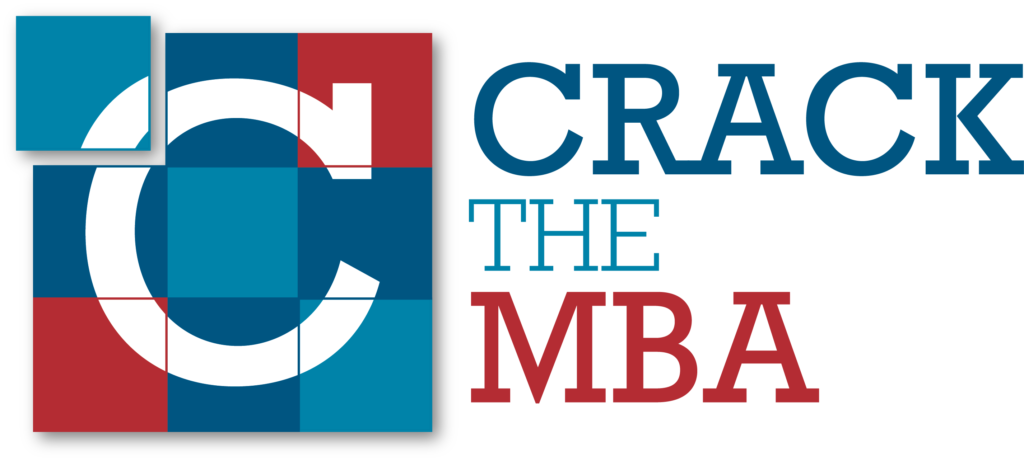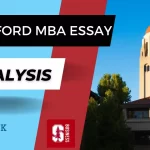Welcome to Part 4 of our 6 part series.
Professional aspirations can play a big part in our choice of schools to apply to. It is extremely helpful to have clarity of thought about what you want out of your business school experience in terms of your professional growth. It enables you to focus your efforts on your goal and in this increasingly difficult economic scenario, it would give you a leg up. Moreover, certain schools are known for expertise in specific career paths. As an example, schools like Wharton and Chicago Booth are known for their supremacy in those Finance jobs. Kellogg inadvertently brings to mind an image with Marketing and Consumer Product Goods as a focus. Hence, having clarity of thought in terms of your career goals would enable you to focus on specific schools wholeheartedly.
Professional Criteria
Internship Opportunities
Two year programs provide for internship opportunities in the summer between the first and second years. The length of the internship can vary from company to company and also depending on your geographic location. It is fairly common to have a 10 week internship in professions such as Consulting and Investment Banking. This would include a week or two of training and would typically culminate in a decision pertaining to your full-time offer. It is not uncommon for students to secure two internships to experience different things in line with their interests.
Programs with exit options between 12 months to 21 months also have internship opportunities depending on the structure, the session when you enter. Should you be a career switcher, it is highly recommended that you plan your business school experience in a way that you are able to secure an Internship as it can make your journey a lot more smooth.
As an example, INSEAD is a 1 year program with two different start dates with one session allowing for an internship and the other one not allowing for the same. You can read about the same here. Hence, it is important for you to understand the options and flexibility afforded with each program and with each session.
Alumni Network
Your career interests may also impact your choice of schools as different schools have different strengths. For instance, should your interests lie in Finance, you may consider Wharton, Chicago, and Columbia as options given the presence of these schools’ alumni in Finance.
Alternatively, you may care about working in Europe in which case London Business School, INSEAD and IESE Business Schools may provide you good opportunities to recruit with companies in the region.
Company Interaction Opportunities
Companies typically tend to have a pre-determined set of schools they visit as part of their recruiting efforts known as “core schools”. Even in bad times such as the 2008 Financial Crisis, companies paid these schools visits. While the numbers may have gone down, but due to pre-existing relationships, companies would still continue to visit the core schools and interact with students.
In order to assess the opportunities for you to recruit within a specific area, it is important you speak with current students, school officials, alumni, representatives from different companies to get a sense for opportunities that will be available to you subsequent to joining a school. This is most important for students who are set on a career and may be less experimental.
For instance, someone who is already working in Consulting and is looking to move from a Tier 2 consulting firm to a Tier 1 consulting firm such as MBB, would need to do their due diligence to ensure their time and effort is not wasted and they can achieve their goals at the school they end up attending.
Another often overlooked and extremely enriching opportunity to engage with companies could be through independent consulting projects which may be possible through a program run by the school. As an example, HEC has a Company Consulting Project track that provides students to work in teams of 3-5 to work with companies in order to solve real-life problems. Some companies that have been involved in this initiative include Volvo, Hugo Boss, Schneider Electric and BNP Paribas.
Full-time Job Opportunities
Given that enhanced career opportunities are cited as the main reason by students for pursuing an MBA degree, it is important for you to understand the full-time opportunities and the track record for full-time employment at different schools. Given the uncertain times and the global economic scenario, this takes on an even more important role. Subject those job reports to scrutiny, question each number, talk to students. It is important for you to understand how many students end up converting their internship into full-time job opportunities, how many students were employed at graduation, how many students got their full-time jobs through the school’s resources, etc. This will enable you to make the decision about going to business school. Should you realize that your chosen field does not have structured recruiting and opportunities depend on networking, you may decide not to pursue an MBA degree at all. In order to make an informed decision, you need to do your homework to make sure you make the right decision and do not end up blowing a big hole in your pocket.
Strength of Career Management Services
On-campus recruiting is structured through the Career Management Services at each school. It is typically a fairly structured process with pre-determined dates for company presentations, interactions, interviews, offer dates, etc. As you look at evaluating different schools, it is important for you to immerse yourself into the workings of the Career Management Services and get a sense for statistics for your chosen field of work. You need to do your due diligence by looking at placement statistics and reports from previous years.
Do not be afraid to ask tough questions, “What % of interns get full-time offers”, “What networking opportunities are provided through the on-campus recruiting process and also more informally through student clubs, etc.”
As an example, should you be looking to find out data and stats on HBS first year and second year students for internships and full-time offers, you could do so here.
Resources available at the School
In addition to the above-mentioned criteria, there are other resources available at the school that could make a difference in your professional aspirations. For example, aspiring entrepreneurs would care about the strength of Entrepreneurial resources at the school such as Business Plan Competition, Entrepreneur-in-Residence Program, Courses, etc. These and other resources are equally worthwhile to consider while making that important choice of the business schools you intend on applying to.
Conclusion
Today, we covered the Professional factors that may influence school selection. All in all, we have covered Academic, Financial and Professional factors with regard to school selection. In our next post, we will cover the final factor i.e. Student Experience as it relates to school selection.






